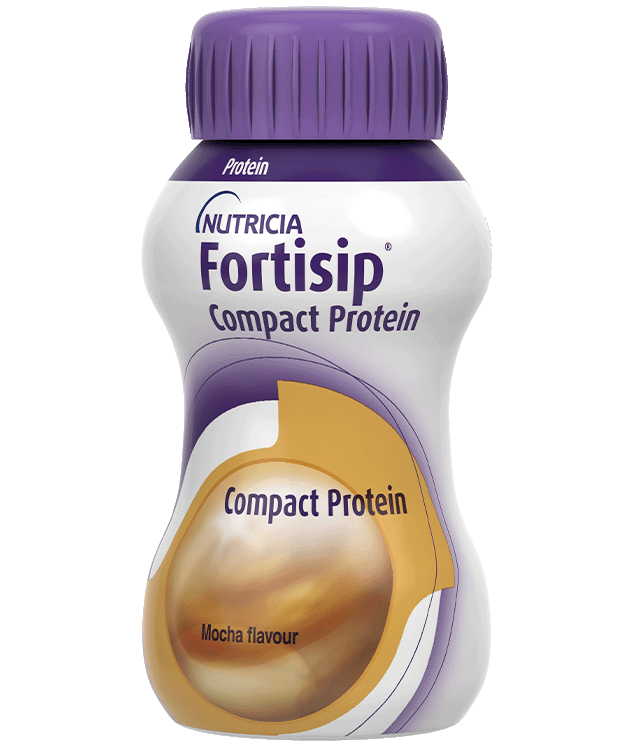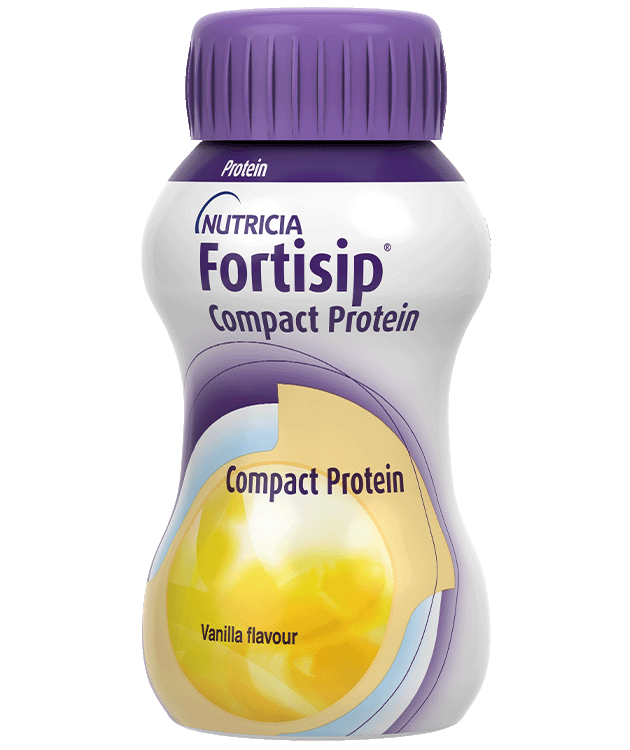

Product Information
A ready-to-drink, high energy, high protein, low volume oral nutritional supplement.
Link copied!
Indications
For the dietary management of:
- Disease-related malnutrition (DRM) including patients with cancer, post-trauma, cystic fibrosis, burns, dementia, chronic obstructive pulmonary disease (COPD) and diseases requiring a fluid restriction e.g. liver disease, renal disease.
- Patients with high energy and protein requirements.
Important notice
- Not for parenteral use.
- Not suitable as a sole source of nutrition.
- Monitor fluid intake to ensure adequate hydration status.
- Not suitable for patients with cow’s milk protein allergy.
- Not suitable for children under 6 years of age.
- Use with caution in children aged 6-10 years.
- Use with caution in patients with impaired renal function.
- Not suitable for patients with galactosaemia.
- Must be used under medical supervision.
Directions for Use
- Best served chilled.
- Shake well before use.
- Usage to be determined by a healthcare professional.
Storage
- Store in a cool, dry place.
- Once opened, close bottle and store in the refrigerator.
- Discard unused content after 24 hours.
Ordering Information
To order contact Nutricia Customer Experience 0800 688 747
| Fortisip Compact Protein | Presentation | Code | Units per carton | Pharmacode |
| Mocha | 125ml bottle | 163226 | 24 | 2593696 |
| Vanilla | 125ml bottle | 162694 | 24 | 2634244 |
| Strawberry | 125ml bottle | 166622 | 24 | 2678322 |
| Neutral | 125ml bottle | 172130 | 24 | 2593661 |
| Hot Tropical Ginger | 125ml bottle | 171692 | 24 | 2593688 |
| Cool Red Fruits | 125ml bottle | 172128 | 24 | 2678330 |
Ingredients
Full ingredients list and nutritional information is available on the product fact sheet.
Allergen & Cultural Information
- Contains: milk and soy.
- Halal certified.
- Nutricia UK and/or Ireland have Kosher approval for this product, except for those flavours containing carminic acid.
- No gluten containing ingredients. No detectable gluten when tested to a sensitivity level of less than 5 parts per million (<5 ppm i.e. <5mg/kg).
- Low lactose (lactose <2g/100g).
References
- Hubbard GP, Elia M, Holdoway A, et al. A systematic review of compliance to oral nutritional supplements. Clin Nutr. 2012;31:293-312.
- Ross PJ, Ashley S, Norton A, et al. Do patients with weight loss have a worse outcome when undergoing chemotherapy for lung cancers? Br J Cancer. 2004;90:1905-11.
- Spotten LE, Corish CA, Lorton CM, et al. Subjective and objective taste and smell changes in cancer. Ann Oncol. 2017;28:969-84.
